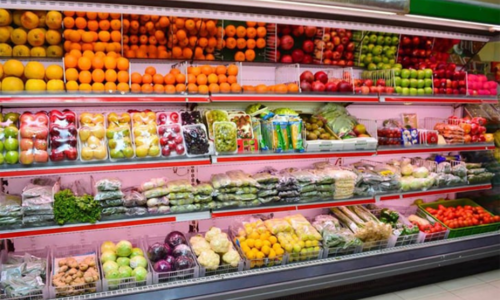ISLAMABAD: Pakistan’s oil and food import bill surged 73 per cent to $14.97 billion in the July-December period compared to $8.67bn a year ago owing to higher international prices and massive depreciation of the rupee.
The share of these products in the total import bill also rose to 37pc during the six-month period, data released by the Pakistan Bureau of Statistics (PBS) showed on Monday.
A steady increase in the import bill of these two sectors has widened the trade deficit and raised fears about the country’s food security.
The total import bill jumped 66pc to $40.65bn in July-December from $24.45bn a year ago.
Total imports rise 66pc year-on-year to $40.65bn
The import of medicinal products went up 475pc year-on-year to $3.09bn during the period under review from $538.93m. This is one of the major hikes in the imports of one sector, mainly due to an increase in Covid-19 vaccine imports. The PBS data showed that the oil import bill rose 113pc to $10.18bn during the half-yearly period from $4.77bn a year ago. As a result, prices of petroleum products also went up considerably for domestic users during the same period.
Further breakup showed that the import of petroleum products went up by 113pc in value and 29pc in quantity. Crude oil imports rose 82pc in value and dropped 0.69pc in quantity during the period under review while those of liquefied natural gas increased 128pc in value. Liquefied petroleum gas imports jumped 39pc in value during the period under review.
The food import bill rose 23pc to $4.79bn in July-December from $3.90bn in the corresponding period of last year to bridge the gap in food production.
Rising food imports and the resultant trade deficit are worrying for the government. Pakistan spent over $8bn on the import of edible items in the last fiscal year.
The import bill is set to go up further in the coming months, as the government has decided to import 600,000 tonnes of sugar and four million tonnes of wheat to build strategic reserves.
Within the food group, the major contribution came from wheat, sugar, edible oil, spices, tea and pulses. Edible oil imports substantially rose in both quantity and value terms. Due to rising world prices, palm oil imports grew 65.8pc to $1.84bn during the six-month period from $1.11bn a year ago.
As a result, domestic prices of vegetable ghee and cooking oil also went up. The import of soya bean oil dipped 4.1pc in value and 49pc in quantity during the period under review.
However, wheat imports fell 29pc to 1.36m tonnes in July-December from 2.48m tonnes last year. In December, wheat imports grew by 15.5pc.
The import of sugar rose 49pc to 308,819 tonnes during the half year from 278,237 tonnes a year ago. However, the import of sugar fell 98pc year-on-year in December. The import bill of pulses, tea and spices also increased during the period under review.
Machinery arrivals rise
The machinery import bill increased 39.5pc to $5.92bn during the six months against $4.24bn in the same period last year. The import of power-generating machinery rose 20.6pc, mainly due to projects related to the China-Pakistan Economic Corridor.
The import of electrical machinery and apparatus jumped 75pc to $1.05bn during the six months from $640.16m a year ago. Mobile phone imports rose 16pc year-on-year to $1.09bn in while those of their apparatus grew 54pc year-on-year to $332.702m.
Import related to the transport sector posted a growth of 105pc to $2.32bn in July-December against $1.13bn over the same period last year. The increase was mainly led by massive imports of road motor vehicles.
Published in Dawn, January 18th, 2022












































